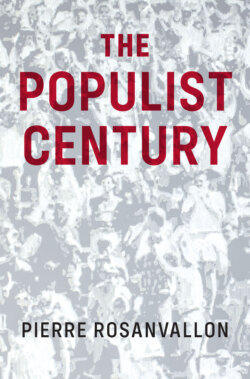Читать книгу The Populist Century - Pierre Rosanvallon - Страница 14
From class to people
ОглавлениеThe populist project of refounding democracy by restoring the centrality of the idea of a people is based in the first place on the abandonment of analyses of the social world in class terms. The arguments of two of the chief exponents of left populism, Ernesto Laclau and Chantal Mouffe, are very revealing on this point. Coming out of a Marxist tradition, these authors observe that ownership of the means of production, with the exploitative relations that ensue, is no longer the only or even the principal issue shaping the contemporary social divide. For the conflicts structuring public space have now spread into new fields: relations between men and women, territorial inequalities, questions of identity and discrimination, for example. But they have also spread into everything that is felt to be an infringement on personal dignity; such infringements are experienced as intolerable forms of distancing and domination (populist discourse reflects this by promising to restore pride even before the question of increased buying power arises). In this context, there is no longer a single class struggle that polarizes things all by itself, just as there is no longer a single social class that essentially bears the hope for humanity’s emancipation (the working class, the proletariat). “The populist moment,” Chantal Mouffe writes,
is the expression of a set of heterogeneous demands, which cannot be formulated merely in terms of interests linked to specific social categories. Furthermore, in neoliberal capitalism new forms of subordination have emerged outside the productive process. They have given rise to demands that no longer correspond to social sectors defined in sociological terms and by their location in the social structure . . . This is why today the political frontier needs to be constructed in a “populist” transversal mode.3
As Mouffe sees it, this new frontier is the one that opposes “the people” to “the oligarchy.” Ernesto Laclau deduces from this argument that
populism is not an ideology but a mode of construction of the political, based on splitting society in two and calling for the mobilization of “those at the bottom” against the existing authorities. There is populism every time the social order is felt to be essentially unjust and when there is a call for the construction of a new subject of collective action – the people – capable of reconfiguring that order in its very foundations. Without the construction and totalization of a new global collective will, there is no populism.4
Laclau presupposes that all the demands and conflicts that traverse society can be ordered along the single axis of the opposition between those who hold political, economic, social, or cultural power, taken as a bloc (Bourdieu calls this the dominant class), and the rest of society (the people).
